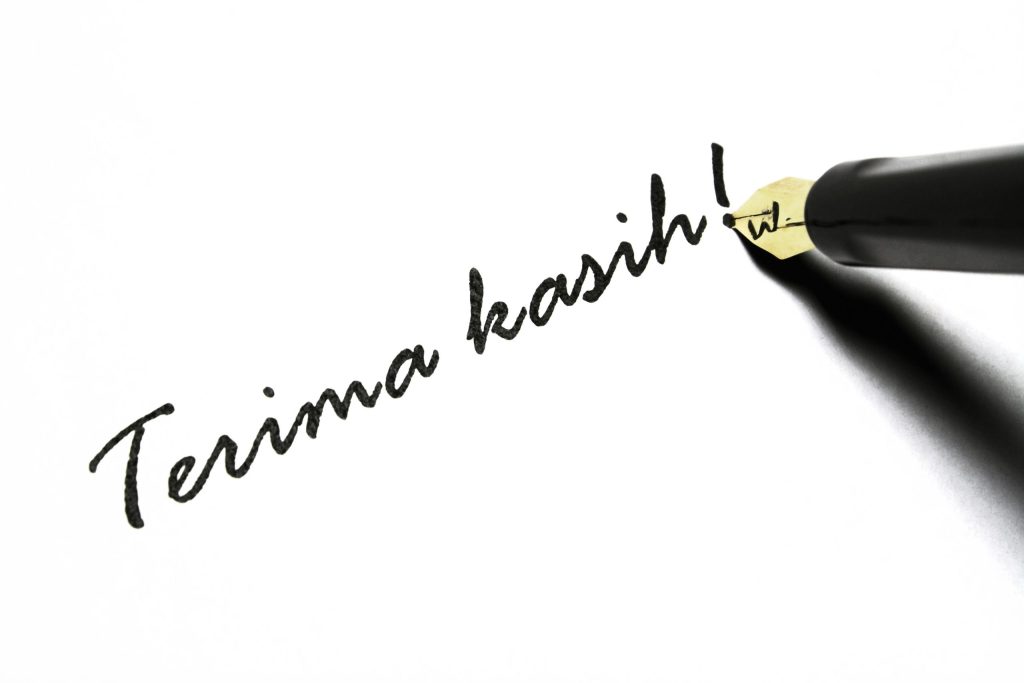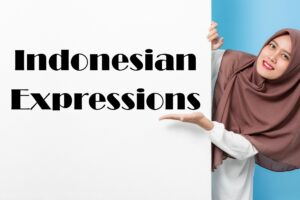When you are in the busy streets of Jakarta, it is helpful to learn how to say Thank you in Indonesian. It is a common practice to learn basic greetings and expressions of gratitude when studying or teaching a new language.
The phrase “Terima kasih” expresses gratitude or “thank you” in Indonesian. It is the most common and widely understood expression of gratitude in Indonesian. Indonesians use this phrase in various contexts to express appreciation and gratitude.
Polite Expressions of Gratitude in Indonesian
When you want to be more formal, you can say “Terima kasih banyak,” which translates to “Thank you very much.” This phrase commonly expresses gratitude towards someone who has done something remarkably kind or helpful for you.”
Terima kasih – Thank you
“In Indonesian people, one of the most common ways to express gratitude.”
This phrase can be a general expression of gratitude when someone holds a door open for you, shares food with you, or in other similar situations. It can be beneficial when learning if you can’t remember specific phrases of gratitude.
Terima kasih banyak – Thank you very much
The word “banyak” translates to “very,” so when you add it to the good phrase “Terima kasih,” you get the phrase “thank you very much.” This enhances the level of gratitude you are expressing towards someone.
You can use this form of this phrase to show appreciation when someone has gone above and beyond to help you, for example, when your manager positively recognizes your work or when your banker spends an entire day retrieving your documents.
Terima kasih atas waktu anda – Thank you for your time
Saying “thank you” is an effective way to show appreciation to someone, especially in a professional or formal setting, for the time they have given or the help they have provided. This phrase is often used interchangeably with “thank you for your time,” which in Indonesian is “atas waktu anda.”
You can use examples of this when expressing gratitude to readers of your article or presenting your business proposal to someone.
Terima kasih atas perhatiannya – Thanks for your attention
“Atas perhatiannya” means “for your attention.” It is a way of thanking someone or a group for taking the time to listen to what you have said. This phrase helps deliver an announcement during an event or when concluding a presentation.
What is a casual way to say “Thank you” in Indonesian?
Indonesia is a land of diverse cultures, where warmth and hospitality shine through in local people and everyday interactions. However, when it comes to expressing gratitude more casually and informally, Indonesians have a range of phrases that add a personal touch to their appreciation.
Makasih – Thanks
“Thanks, bro” is a slang way to quickly say “thank you,” commonly used among friends or in informal situations by locals.
It would help if you used this phrase when someone hands you your cup of coffee or when thanking a taxi driver.
Makasih ya – Thanks
“Ya” is a casual way of saying “thank you” to express gratitude towards someone known well, like friends or family.
You can use this phrase to express gratitude towards your sister for waiting for you at the train station even though you were late or towards your spouse for heating your food.
Thanks, ya – Thank you
The term is slang and has a similar meaning to the words ‘Makasih ya,’ but it’s much more informal.
Makasih banyak – Thanks a lot
In Indonesian, the word “banyak” literally means “a lot” or “very much.” Combined with the slang word “Makasih,” it forms an informal phrase meaning “thanks a lot.” This phrase expresses more enthusiasm compared to just “Makasih.”
Thank you in Indonesian When Texting
These expressions are informal and contain a lot of slang. Therefore, they should only be used to express appreciation to close friends and family members. For example, you may use them to thank a friend for sending you the location of an event or for providing an answer to a question you asked.
Trims – Thanks
“Thanks” is the informal way to say Terima kasih in Indonesian, similar to “Tnx” in English. The younger generation mainly uses it, and it should only be used with close friends or family.
Thank you (said by a Chinese Indonesian person) – Kamsia
The correct origin of “Kamsia” is not Indonesian but actually from the Hokkien or Southern Min Chinese language. Chinese residents of Indonesia commonly use the phrase to express gratitude. This informal phrase should only be used with close friends or family. Indonesians, except for the local Chinese community, typically do not use this phrase.
Maaci – Thank you
“Thanks” is a colloquial slang term with the same meaning as “makasih.” However, using this term with your boss or someone foreign language you need to become more familiar with is not recommended.
Tenkyu – Thanks a lot
Another slang for expressing gratitude, similar to “Makasih banyak,” is “thanks a lot.”
How to Say You’re Welcome in Indonesian
In the Indonesian context, “you’re welcome” is not commonly used and is seen more as a formal Indonesian language. In response to someone saying thank you to you, the typical reply would be “sama-sama,” which translates to “you’re welcome” or “my pleasure.” It means that the help or favor given was mutual.
Sama sama – You’re welcome (formal/informal)
The phrase “sama-sama” is derived from the word “sama,” which means “same.” Therefore, it conveys that you are equally grateful to the person who thanked you.
Terima kasih kembali – You’re welcome (formal)
“Terima kasih” is Indonesian for “thank you,” and “kembali” means “welcome back” or “return.” Essentially, when combined, they mean “you’re welcome.” This phrase is more formal than “sama-sama” and should be used in appropriate situations, such as in an office or other traditional settings.
You can use this phrase to show appreciation after your boss thanks you for delivering documents to his office or after the host thanks you for attending a formal event.
Nggak pa-pa – No problem (informal)
“It means ‘It’s okay’ or ‘It’s fine.’ It’s the informal or casual version of ‘sama-sama’ but has the same meaning. It’s recommended to use it only with close friends or family.”
Understanding Cultural Norms for Expressing Gratitude in Indonesian
Using informal ways of saying thank you is acceptable in casual business situations, despite the presence of numerous formal phrases. However, reserving traditional expressions of gratitude for formal situations, such as weddings or when expressing gratitude towards an elder or someone of higher social status, is appropriate.
The term “trims” is commonly used as slang among young people in Jakarta, Indonesia. Therefore, it’s best to only use it with close friends and family who are around the same age as you. It’s also recommended only to use it in casual or relaxed situations.
Lastly, the typical way to express gratitude is by using Terima kasih. The word “Terima kasih” translates to “accept love” in English, a beautiful way of expressing gratitude. However, it could be more impressive.


